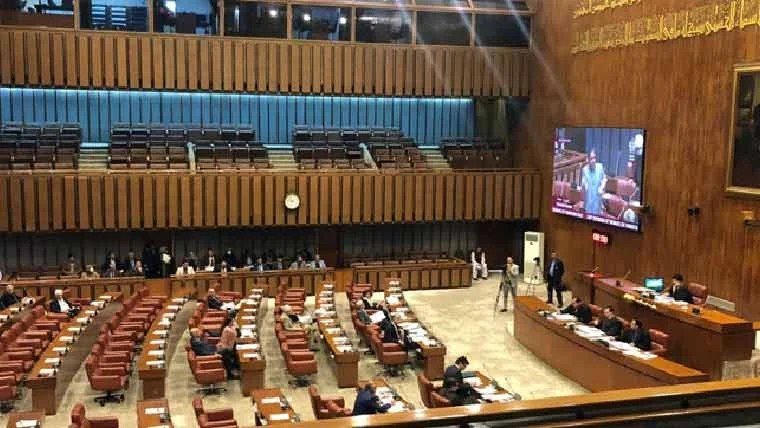In a significant move towards improving adolescent health education in Pakistan, the Senate Standing Committee on Education has approved a bill to introduce reproductive health education for students aged 14 years. This decision marks an important step in addressing the lack of awareness among young teenagers regarding their physical development, reproductive health, and mental well-being.
The Need for Reproductive Health Education
Pakistan faces many challenges related to adolescent health, especially concerning early marriages, teenage pregnancies, and a general lack of awareness about puberty and reproductive health. Many young boys and girls enter puberty without sufficient knowledge about the changes their bodies undergo, leading to confusion, anxiety, and sometimes health issues. Additionally, early marriages without proper understanding of reproductive health contribute to increased maternal and infant mortality rates.
The Senate committee’s decision to approve this bill highlights the recognition that reproductive health education is essential for empowering young people with accurate and age-appropriate knowledge. Teaching students about their bodies, physical changes during puberty, menstrual hygiene, sexually transmitted infections (STIs), and emotional health can help prevent misconceptions and promote healthier lifestyles.
Key Features of the Bill
The bill, which was put forward by Senator Quratulain Mari, emphasizes the integration of reproductive health education into the school curriculum for students aged 14 and above. Senator Mari pointed out that due to cultural taboos and lack of discussion around sexual and reproductive health, many adolescents suffer from preventable health issues. By introducing formal education on these topics, the bill aims to fill this crucial gap.
One of the core aspects of the bill is to provide comprehensive information about puberty, reproductive organs, menstrual health, contraception, and the importance of consent and respectful relationships. Furthermore, it addresses mental health, recognizing that adolescence is also a vulnerable period for psychological challenges.
Formation of a Subcommittee and Further Review
The Senate Standing Committee has formed a subcommittee chaired by Senator Kamran Murtaza to conduct a detailed review of the bill. The subcommittee is tasked with refining the provisions and ensuring the content is culturally sensitive yet scientifically accurate. In addition, the committee has sought input from the Islamic Ideology Council to ensure that the curriculum aligns with religious and societal norms while still providing critical health education.
This collaborative approach aims to address any concerns from various stakeholders and achieve a balanced curriculum that parents, educators, and students can support. The inclusion of mental health topics in the bill also reflects a holistic understanding of adolescent well-being, beyond just physical health.
Importance of Introducing Health Education at the Right Age
The decision to target 14-year-old students is based on the fact that this is a critical age when many adolescents start experiencing puberty-related changes. Early education can equip them with knowledge to navigate these changes confidently and responsibly.
Providing this education within the school system ensures that all students, regardless of their background or access to other sources of information, receive consistent and reliable knowledge. It can also help reduce myths, stigma, and misinformation that often surround reproductive health topics in conservative societies.
Potential Impact on Society
Implementing reproductive health education in schools can have a long-lasting positive impact on Pakistan’s society. By educating young people, it is possible to reduce early marriages, lower rates of teenage pregnancies, improve menstrual hygiene, and decrease the incidence of sexually transmitted infections.
Additionally, understanding reproductive health contributes to gender equality by empowering girls and boys to make informed decisions about their bodies and futures. It encourages respect for personal boundaries and promotes healthier relationships.
Moreover, the focus on mental health recognizes the pressures that adolescents face today, including academic stress, peer pressure, and family expectations. Providing resources and education on emotional well-being can help reduce issues such as anxiety and depression among teenagers.
Challenges and the Road Ahead
Despite the clear benefits, implementing reproductive health education in Pakistan faces challenges. Cultural and religious sensitivities often make discussions around sexual health taboo. Parents, educators, and religious leaders may have concerns about the appropriateness of the content or fear that such education could encourage early sexual activity.
Addressing these concerns requires transparent dialogue, community engagement, and education for parents and teachers alongside students. Training teachers to handle these subjects sensitively and professionally is crucial for the success of the program.
The collaboration with the Islamic Ideology Council and the subcommittee’s efforts to review and adapt the curriculum demonstrate a thoughtful approach to balancing cultural values with health education needs.
Conclusion
The Senate Standing Committee’s approval of the bill to introduce reproductive health education for 14-year-old students represents a progressive and necessary step toward improving adolescent health in Pakistan. By providing scientifically accurate, culturally sensitive, and age-appropriate education, this initiative aims to empower young people with the knowledge they need to lead healthier and more informed lives.
If effectively implemented, the bill can contribute significantly to reducing health risks associated with adolescence, promote gender equality, and support the overall well-being of Pakistan’s youth. It reflects a growing recognition that education is not only about academics but also about equipping students with life skills that will benefit them and society as a whole.
Reference: 14سال کےطلبہ و طالبات کو تولیدی صحت کی تعلیم پر سینیٹ کی قائمہ کمیٹی میں بل منظور







